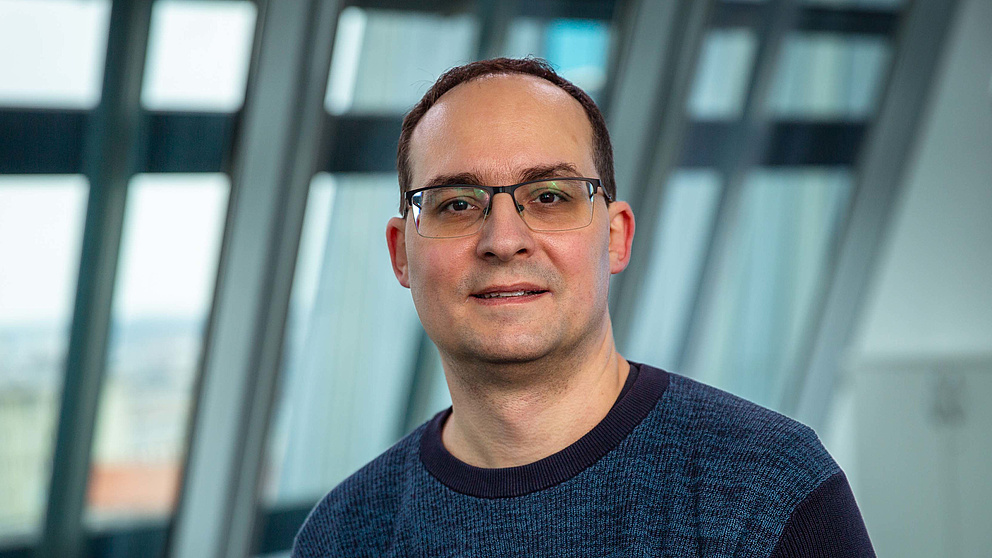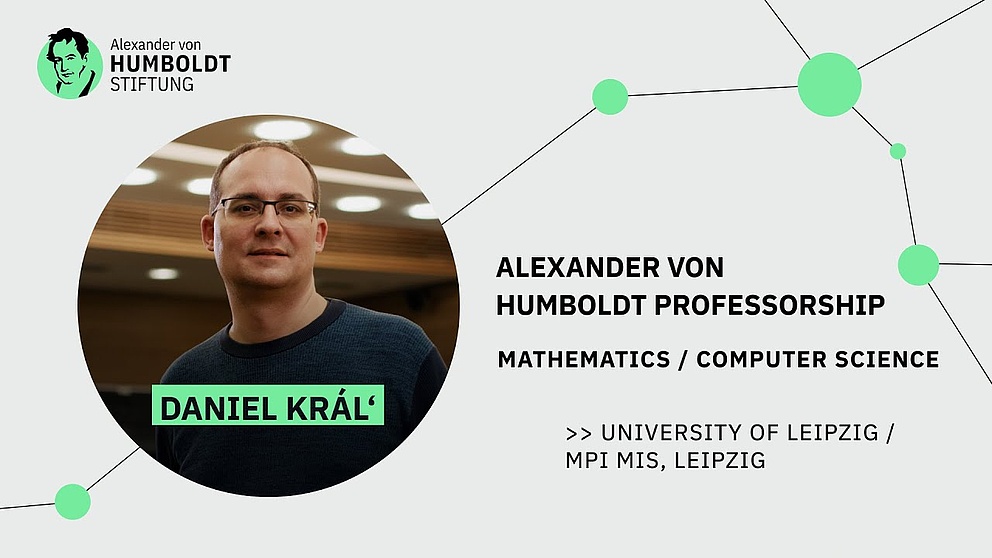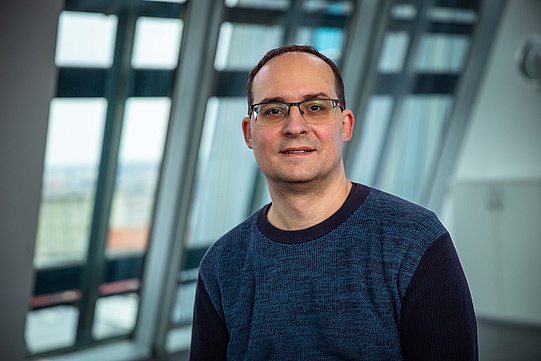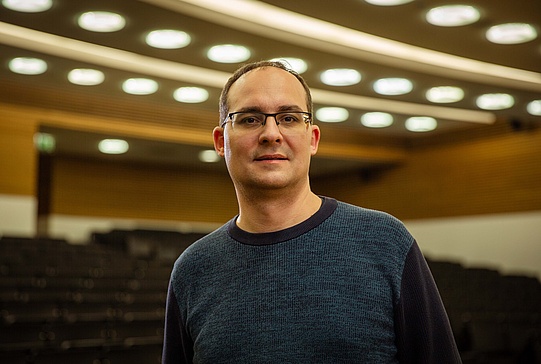Jump to the content
- {{#headlines}}
- {{title}} {{/headlines}}

Contact
Press, Communications and Marketing
Tel.: +49 228 833-144
Fax: +49 228 833-441
presse[at]avh.de
Mathematics / Computer Science
How many colours do you need to colour in the countries on a map so that no two neighbouring countries are the same colour? What is the shortest route between two places in a road network? These are questions that are tackled by graph theory, the focus of the mathematician Daniel Kráľ. A graph is a mathematical object consisting of vertices and edges. The road map in a GPS device, for example, is based on a graph, that is, a list of crossings (vertices) with mutual links (edges).
A branch of discrete mathematics, some problems in graph theory have remained unresolved for decades. Daniel Kráľ has contributed to finally answering several of these questions by either confirming or disproving conjectures mathematically. In 2011, for instance, he and his colleagues completely solved the Lovász-Plummer Conjecture that had been posited in the 1970s: The conjecture stated that in a connected finite graph, in which each vertex has exactly three neighbours and which is still connected even after the removal of any edge, there are exponentially many possibilities to divide the vertices into neighbouring pairs.
Kráľ also works on the rapidly evolving field of extremal combinatorics and has developed new problem-solving methods. Extremal combinatorics addresses extreme, that is, maximum or minimum, solutions to combinatorial problems. One example of a well-known problem: How many people do I need to invite to a party if at least four people should either know or not know another?
By recruiting Kráľ as a Humboldt Professor, Leipzig University aims to increasingly network its strategic focus on “Intelligent Methods and Materials” internally. Moreover, cooperation is supposed to be reinforced between the Institutes of Mathematics and of Computer Science, the Max Planck Institute for Mathematics in the Sciences and the Center for Scalable Data Analytics and Artificial Intelligence.
Brief bio
Following stints in Germany, the United States and his home country, the Czech Republic, Daniel Kráľ was appointed to a professorship at the University of Warwick, United Kingdom, in 2012. He still holds a permanent honorary professorship there having assumed the
Donald Ervin Knuth Professorship at Masaryk University in Brno, Czech Republic, in 2018. For his research achievements he has been awarded, amongst others, an ERC Starting Grant in 2010, the 2011 European Prize in Combinatorics, the 2014 Philip Leverhulme Prize in Mathematics and Statistics and an ERC Consolidator Grant in 2015.







